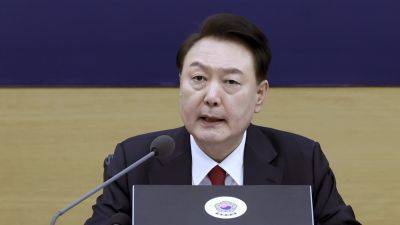Why South Korea's Japan-style measures to boost its stock market may not work
South Korea's Japan-style measures for improving corporate governance may not be enough to boost its undervalued stock markets and tackle the so-called "Korea discount."
The country's Financial Services Commission on Monday revealed its "Corporate Value-up Program," aimed at supporting shareholder returns through incentives including tax benefits.
Asia's fourth-largest economy is striving to boost stock market valuations that are considered much lower compared to peers, with analysts referring to the phenomenon as the "Korea discount."
The FSC program is similar to that of Japan's, whose corporate governance push to boost shareholder returns as well as robust earnings have driven Tokyo markets to record highs after 34 years.
South Korea's steps, while similar to those taken by Japan, may not prove to be as successful.
South Korean markets are made up of corporations called "chaebols," which are large family-owned global conglomerates, typically controlled by the founder's family. Notable chaebols include Samsung Electronics, LG, SK and Hyundai.
The chaebols are also part of the reason behind the Korea discount as under these majority family-owned structures, minority stakeholders have little influence on strategic decisions.
"Key issue is that 'Korea discount' exists because controlling shareholders take disproportional benefits," said James Lim, senior research analyst at Dalton Investments, while noting that Korea has more companies with strong controlling shareholders versus Japan. "That's where the challenge lies."
Resistance from controlling shareholders makes changes difficult and slow, but if authorities take measures that would align with the interests of both the controlling as well as minority shareholders they could







